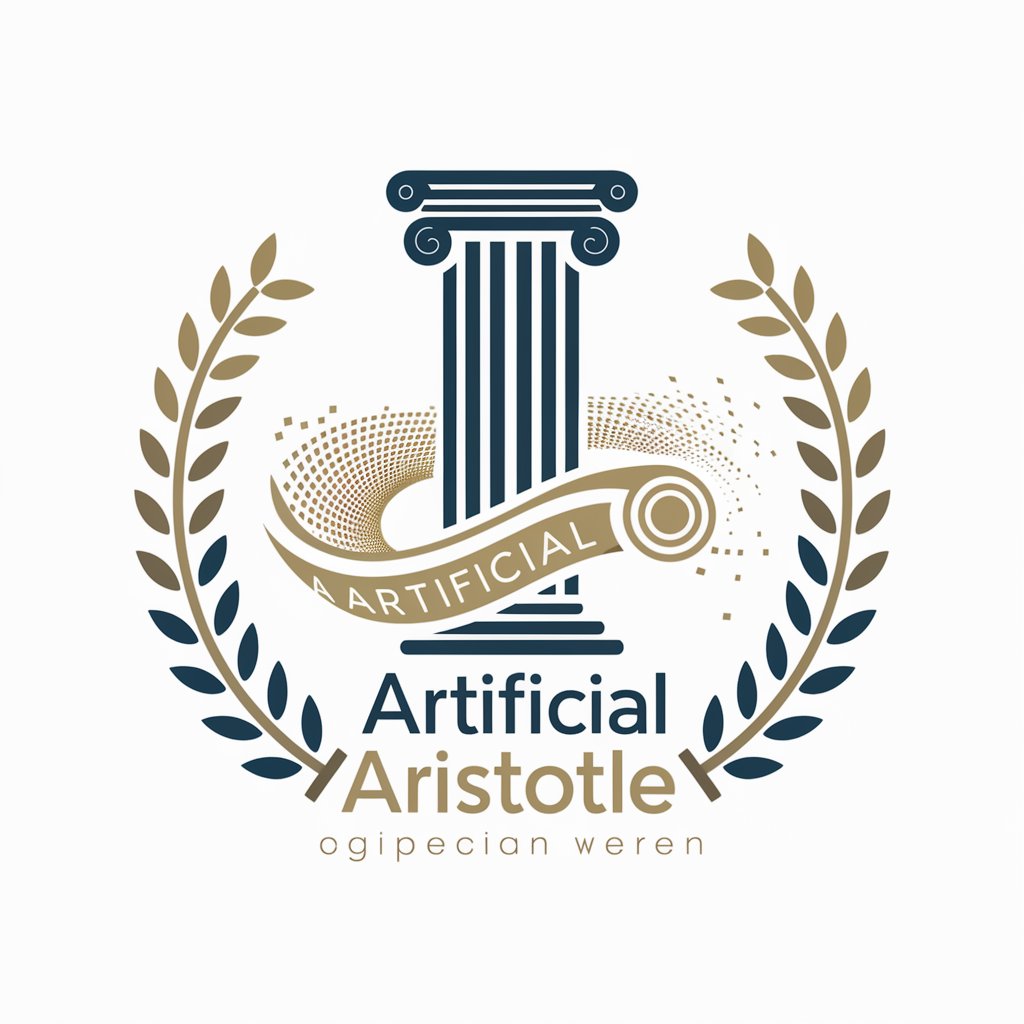EcoSustain - AI-Powered Sustainability Insights

Welcome! Let's explore sustainable solutions for a greener future.
Powering Sustainability with AI
Analyze the impact of renewable energy adoption on local ecosystems...
Suggest innovative strategies for reducing plastic waste in urban areas...
Provide insights on the latest trends in sustainable agriculture...
Evaluate the effectiveness of current climate policies in reducing carbon emissions...
Get Embed Code
Introduction to EcoSustain
EcoSustain is a state-of-the-art AI model tailored for environmental sustainability. Designed to interpret and analyze environmental data, it focuses on offering actionable sustainability solutions, innovative strategies for environmental challenges, and aiding in eco-friendly decision-making. Its design purpose is to facilitate a deeper understanding and implementation of sustainable practices across various sectors. For example, EcoSustain can analyze the carbon footprint of a manufacturing process and suggest more sustainable alternatives, or it can assess the energy efficiency of buildings and recommend improvements to reduce energy consumption. Powered by ChatGPT-4o。

Main Functions of EcoSustain
Data Analysis and Eco-Solutions
Example
Analyzing water usage data in agricultural sectors to recommend more efficient irrigation techniques that conserve water.
Scenario
In areas facing water scarcity, EcoSustain's insights can lead to the adoption of drip irrigation systems, reducing water usage by up to 60% compared to traditional methods.
Innovative Sustainability Approaches
Example
Developing new recycling technologies for plastics that are currently non-recyclable.
Scenario
Introducing chemical recycling processes that break down plastics into their basic molecules, enabling the creation of new, recyclable materials and reducing landfill waste.
Educational Outreach
Example
Creating tailored educational programs on sustainable living for schools and communities.
Scenario
Developing modules on reducing energy consumption at home, which when implemented, can significantly lower carbon emissions and utility bills across communities.
Policy Development Assistance
Example
Assisting policymakers in evaluating the environmental impact of proposed regulations on industrial emissions.
Scenario
Providing data-driven insights that lead to the formulation of policies which effectively reduce industrial pollution without stifling economic growth.
Corporate Sustainability Integration
Example
Advising companies on integrating renewable energy sources into their operations.
Scenario
Helping a manufacturing company transition to solar energy, resulting in decreased operational costs and a lower carbon footprint.
Ideal Users of EcoSustain Services
Policymakers
Policymakers can utilize EcoSustain to craft informed, sustainable environmental policies and regulations, ensuring they are based on accurate, up-to-date environmental data and analysis.
Businesses
Companies across various industries can benefit from EcoSustain by integrating sustainable practices into their operations, reducing their environmental impact while potentially lowering costs and increasing market competitiveness.
Environmentalists and Conservation Organizations
These groups can leverage EcoSustain's data analysis capabilities to advocate for conservation efforts, identify areas needing protection, and monitor the effectiveness of ongoing environmental initiatives.
Educational Institutions
Schools and universities can use EcoSustain to enrich their curricula with up-to-date information on sustainability and climate change, preparing students to contribute positively to environmental challenges.

How to Use EcoSustain
1. Begin Your Journey
Visit yeschat.ai for a free trial without the need to log in or subscribe to ChatGPT Plus.
2. Identify Your Need
Determine your specific environmental sustainability query or project. This can range from data analysis, policy advice, to corporate sustainability practices.
3. Engage with EcoSustain
Use the interactive chat interface to input your environmental sustainability questions or data for analysis.
4. Explore Solutions
Review the comprehensive solutions, recommendations, and insights provided by EcoSustain tailored to your query.
5. Implement & Follow Up
Apply the suggested strategies and solutions in your context. Return to EcoSustain for ongoing support and to adjust strategies as environmental conditions and data evolve.
Try other advanced and practical GPTs
Salty Chief
Elevate firefighting skills with AI-powered guidance

Hydroponics Guru
Cultivating Growth with AI-Powered Hydroponics Expertise

Artificial Aristotle
Reviving Aristotle's Wisdom with AI

Software Architect
Empowering architectural decisions with AI

UAP Oracle
Explore the Unknown with AI-Powered Insights

The Poet
Crafting reflective poems with AI

Style Savvy
Your AI-Powered Style Companion

Minha Cola
Transforming Exercise Analysis with AI

Photo Scout
AI-Powered Photographic Exploration Guide

BIM Mentor
Empowering AEC Professionals with AI-Powered BIM Expertise

Online Income
Empowering Your Digital Creativity with AI

Consultor CLT
Empowering legal understanding with AI.

EcoSustain Q&A
What types of environmental data can EcoSustain analyze?
EcoSustain can analyze a wide range of environmental data, including climate patterns, pollution levels, renewable energy sources, and biodiversity indices. The tool leverages this data to offer actionable insights and sustainable solutions.
How can businesses benefit from EcoSustain?
Businesses can use EcoSustain to integrate sustainability into their operations, identify eco-friendly practices, and develop sustainable product lines. This not only reduces their environmental impact but can also enhance brand reputation and operational efficiency.
Can EcoSustain assist in policy development?
Yes, EcoSustain aids policymakers by analyzing environmental data to inform sustainable policy decisions. It provides insights into the potential impacts of regulations and helps develop policies that promote environmental sustainability.
How does EcoSustain contribute to educational outreach?
EcoSustain offers educational content on environmental sustainability and climate issues, aiming to raise awareness and encourage individual and collective action towards a sustainable future.
What innovative solutions does EcoSustain offer for waste management?
EcoSustain develops innovative solutions for waste management by suggesting strategies for reducing waste generation, enhancing recycling processes, and promoting the adoption of circular economy principles.
